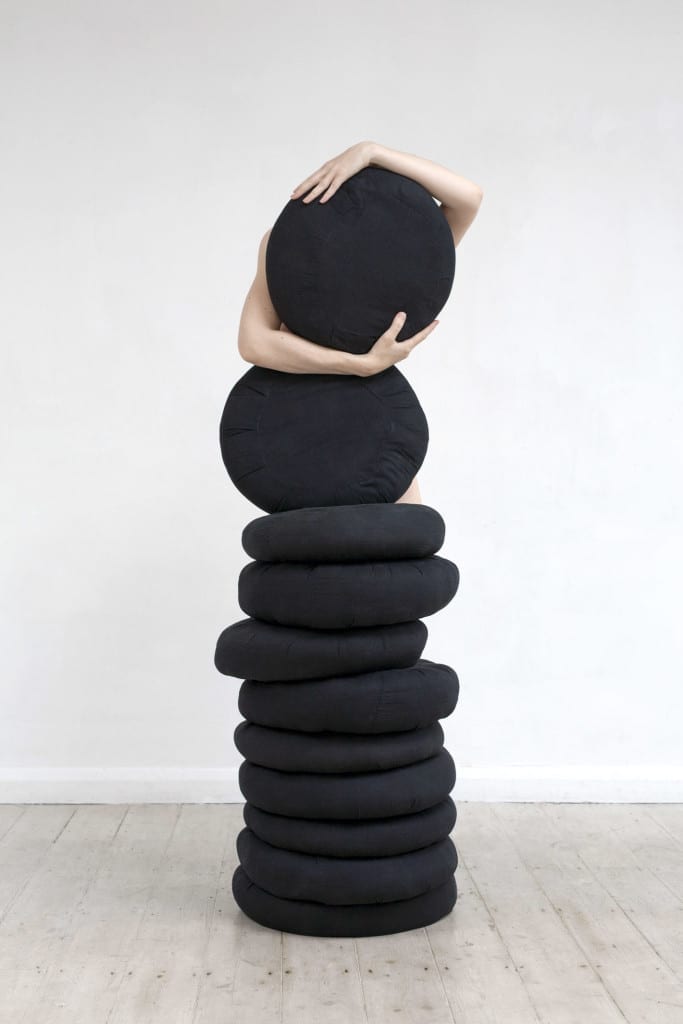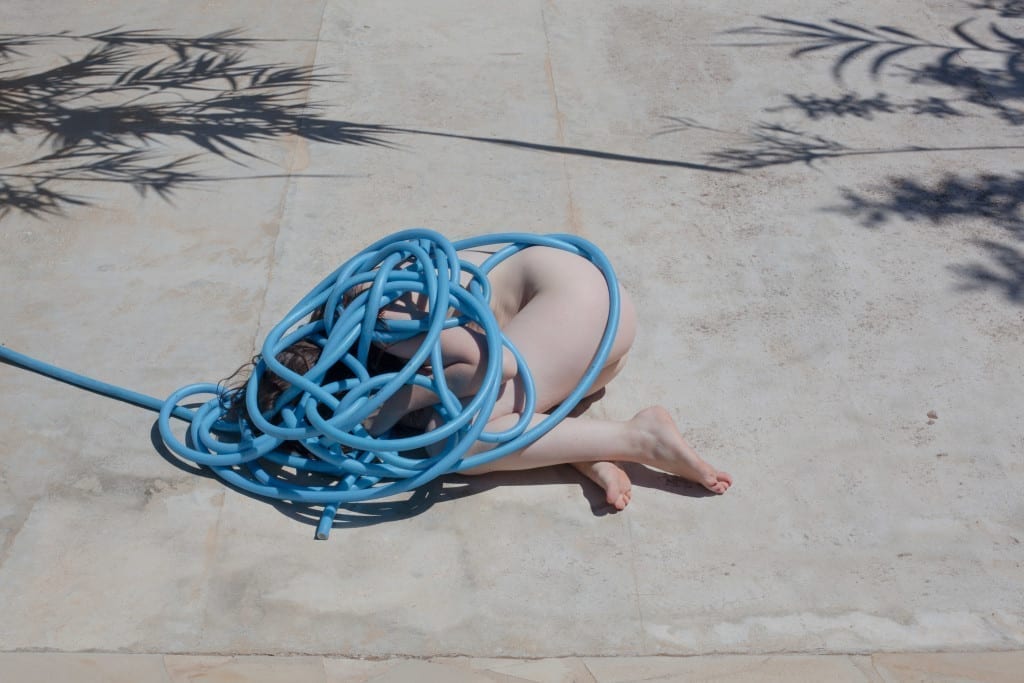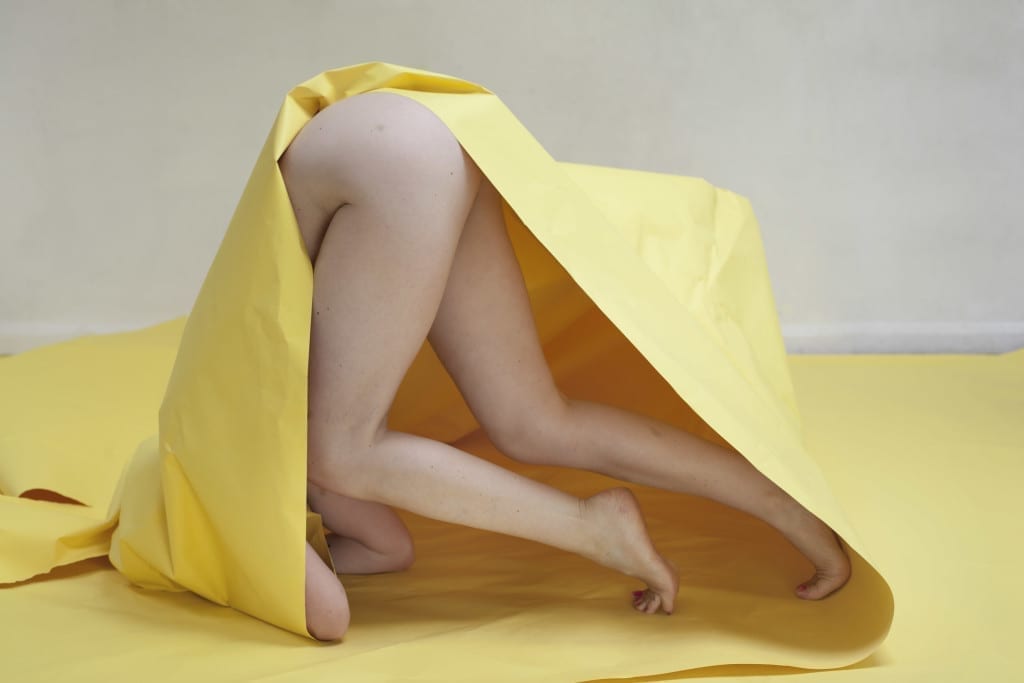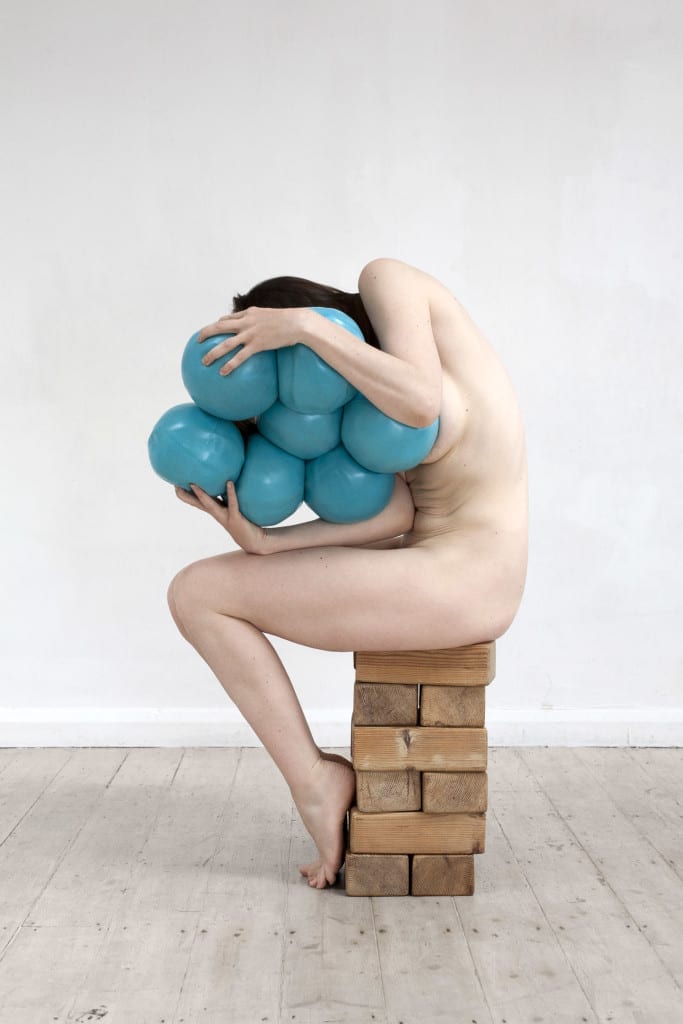On the day of our meeting, the Hoxton Gallery is a building site. The walls have been stripped, the floors are sprinkled in layers of dust mashed with wet footprints of builder’s boots and towers of cardboard pile up by the window.
There is an unusually tall table – dark wood supported by a minimalist metal frame – standing by the pillar. A collection of 6×8 inch matte prints are neatly arranged on the tabletop, awaiting inspection.
The empty space amplifies the sound of footsteps approaching from the stairs. Tossing back a box fringe, the London-based art photographer Polly Penrose emerges carrying two stools and crashes them down next to the table display.
The said photographs are a preview of Penrose’s new exhibition, 10 Seconds, due to open at the gallery this May.

“Rather than interacting with the space, I am interacting with what is in the space, and what is available to me,” Penrose says of the photography in her exhibition which, whilst still self portraits in the nude, are radically different from her previous (and ongoing) series, titled Body of Work (featured by the BJP in 2014), which established her name.
“They’re much more sculptural than my previous work,” she says. “Because I’m interacting with things that are malleable. They’re quick, almost like sketches.”
10 Seconds show is formed of three projects: I Was Never Good At Yoga, Paperwork and Pool Party.
As with Body of Work, each image in this series is a naked self-portrait of Penrose, bending and contorting into a dynamic shapes, always facing away from the camera.
The artist explains her belief that, in showing a person’s face, our perception of the image is changed. The human eye is naturally drawn to it as a familiarisation tool and as a focal point. It’s something she wanted to avoid.

“The face turns it into something else,” she says. “The body and the language and what is being conveyed becomes secondary. My face would not make it universal, it would make it me.”
As the title of the exhibition, 10 Seconds, suggests, Penrose’s creative process was fast and spontaneous.
The immediacy of her interaction with objects in space – whether it is a yoga mat, a sheet of Colorama or an inflatable lilo – results in a series somewhat more playful than her previous work.
She laughs as she recalls the comedy of diving back and forth between stage and camera.
“I’ve always loved the idea of having a show with a video of me taking that picture and then having the picture next to it,” says Penrose.
“It’s not an attractive, elegant process, she says. “It’s really ugly and can be quite funny. I could really hurt myself and completely fall short of getting the shot.”

Although the photographs themselves are calm, this frantic technique, and the veritable theatre that goes on in the backstage production process, can prove rather hazardous.
But the pain and physical over-exertion are in fact an integral part of the process of experimentation, Penrose says.
Her Pool Party series was taken at the peak of summer in Ibiza. She describes the burning concrete, the weight of the water hose on her body, the feeling of her fair skin burning in the midday sun.
“I struggle every single time I take a picture,” says Penrose. “It’s a release. It’s physical, something I see as really important, but not essential, to my photography. I don’t think I’ve ever taken a picture that made me ache the next day, but it’s not a masochistic thing.”
Has she ever pushed herself too far? “Oh, yes.” She slides off the stool and squats on the ground, with her hands stretched out in front holding a cluster of imaginary rubber balls, just as she does in a graphic photograph from her I Was Never Good At Yoga series.

“I was on a block and had to bend down, squeeze the balls really hard and then turn,” She begins to tense and twist her upper body to demonstrate.
“I tore a rotator cuff [in my shoulder] – I still have a damaged shoulder. I knew that I needed it to be absolutely straight to the camera to be as graphic as it could be and I just twisted too much. But I held it.”
Twist and Shout: The naked truth unravelling Polly Penrose's new exhibition
Pages: 1 2
